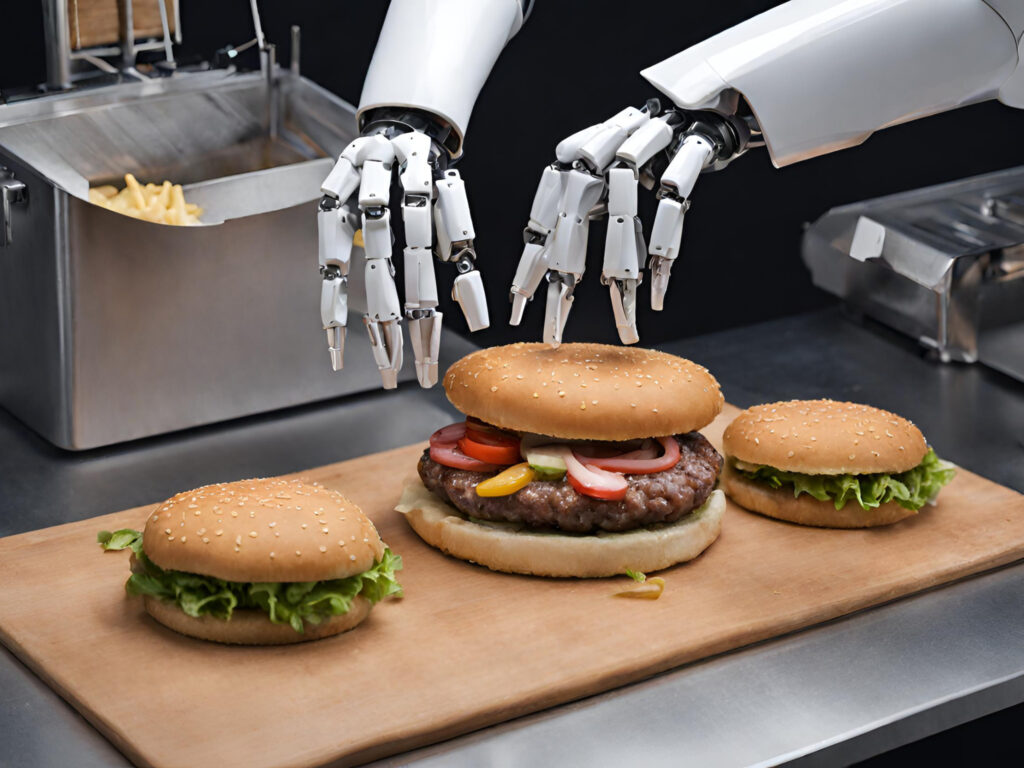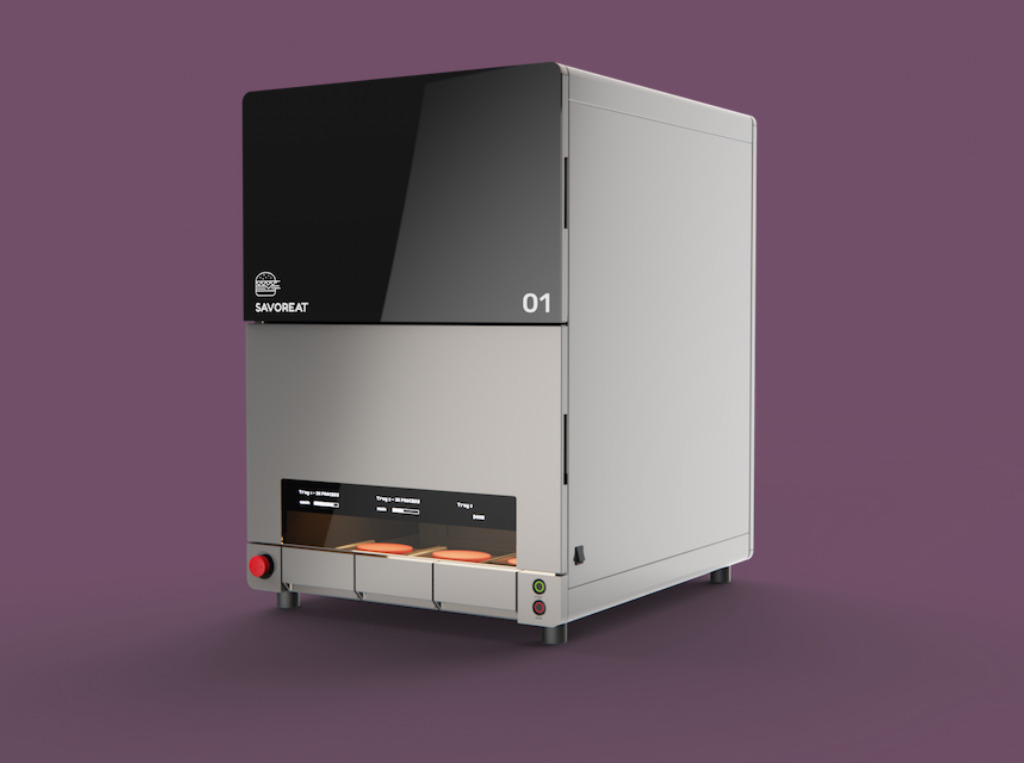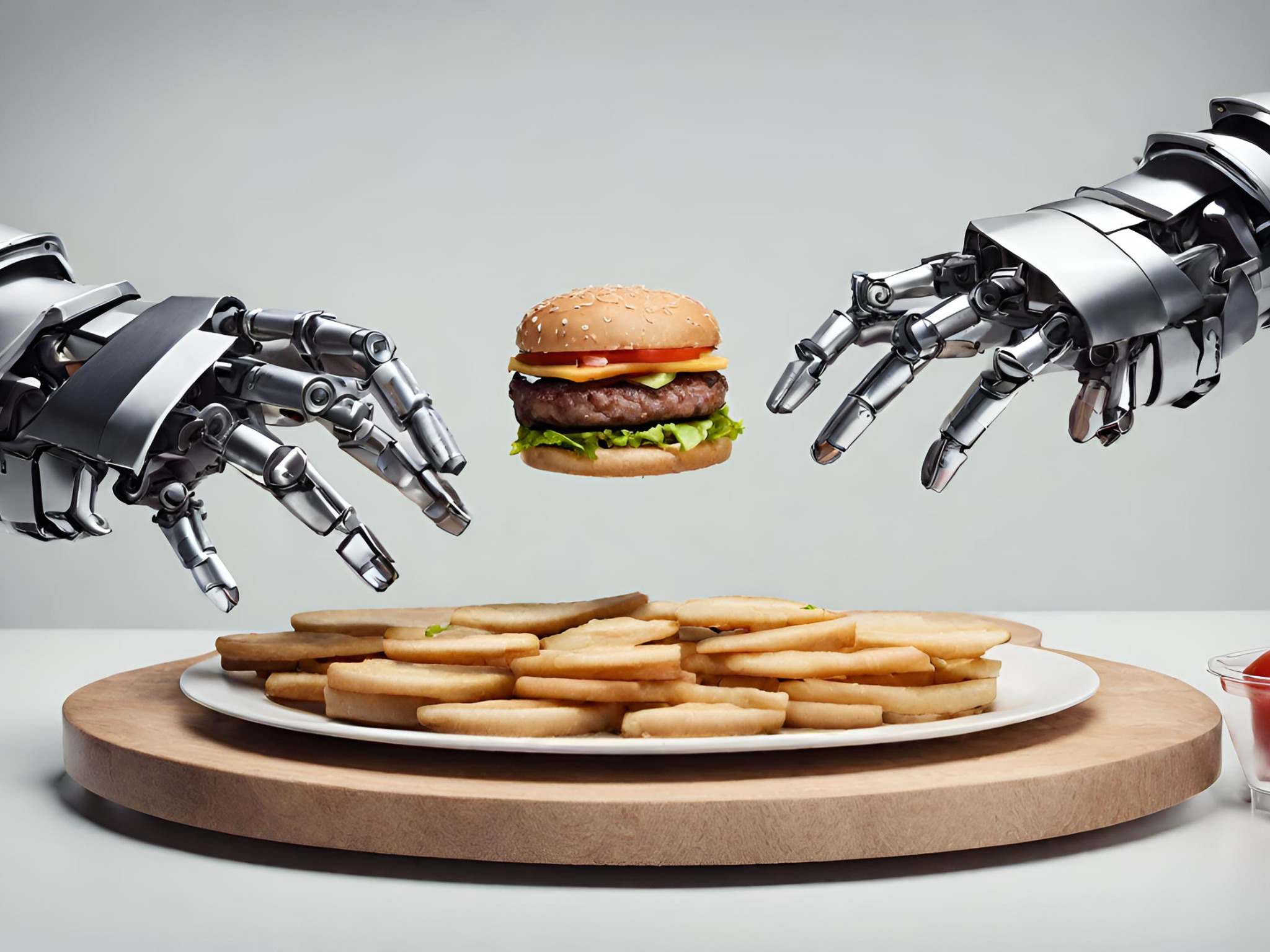Kernel: Chipotle’s Founder is Opening A Veggie Restaurant Chain Where Robots Will Make Your Burger
4 Mins Read
Chipotle founder Steve Ells is opening Kernel, a new fast-casual meatless restaurant concept leveraging robot chefs and minimising waste. With the first location set to open in Manhattan next year, it marks a return to the foodservice world for the former Chipotle CEO, who exited the company in 2020.
It was Bill Gates who inspired Steve Ells to re-enter the food space. Having stepped down as executive chairman at Chipotle in 2020, on the back of multiple foodborne illness outbreaks linked to the burrito chain’s food, Ells spent some time skiing and reading. He found Gates’ 2021 book How to Avoid a Climate Disaster, which outlines environmental solutions to eliminate emissions.
One of these solutions is eating less meat, something that accounts for 60% of all emissions from food, which itself contributes to a third of the planet’s emissions. In fact, animal-derived foods like meat and dairy cause twice as many emissions as plant-based ones – a connection not made by over 74% of Americans, who eat three times more meat than the recommended amount.
Ells sought to use his two-decades-long experience in foodservice industry to help the situation. His new meat-free restaurant chain, Kernel, will tap into robots and only a skeleton human staff to minimise resources, cut waste and ensure food safety.

How robots will make your veggie burger at Kernel
That last factor is pertinent. Chipotle was hit with the largest fine imposed in a US food safety case, agreeing to pay $25M after over 1,100 customers got food poisoning from its food between 2015 and 2018.
As reported by the Wall Street Journal, Ells says a single Kernel location can only need three human employees – as opposed to dozens at other QSR chains – with the robots doing the bulk of the work. This system is designed to ensure better food safety standards.
Additionally, it’s also built to minimise waste. A third of all food is wasted globally, and in the US, over 84% of all unused food in restaurants is thrown away, amounting to between 25,000-75,000 lbs a year for a single restaurant. Ells and his team have thus worked out a way to squeeze a commissary kitchen and robotics into spaces around 1,000 sq ft or less to make to-go food orders.

Here’s how it works: once your order is in, a robotic arm places a pan with food in the oven, while a programmed toaster puts a bun in the oven for warming. A conveyor belt moves the dishes along, which are finished by employees who provide any final touches, package the food, and put it into a cubbyhole for pickup.
“We’ve taken a lot of human interaction out of the process and left just enough,” explains Ells. The 58-year-old’s new restaurant will rival fast-casual players like Shake Shack, Sweetgreen and Chipotle itself.
Attracting investment and planned locations
Ells opened Chipotle in 1993 after graduating from the Culinary Institute of America, with the initial purpose of generating funds to open a fine-dining establishment. He borrowed $85,000 from his father to open the burrito chain, which became so successful that the fine-dining idea was abandoned and within 13 years, the company went public with over 500 restaurants.
Ells paid his father back within a year of opening Chipotle, and now has a reported net worth of at least $200M. He’s injecting $10M of his own money into Kernel, with an additional $36M coming from investors. This includes VC firm Greylock Partners, which has a host of AI-led startups in its investment portfolio.
The new restaurant will focus on whole foods like legumes and vegetables over plant-based meat alternatives, which have had a couple of tough years in the US. “It’s not trying to be beef. It’s not trying to be pork,” Ells says of Kernel’s veggie burger.
And while he may not have returned to fine dining himself, the entrepreneur has tapped Andrew Black, a former chef at New York’s now-mostly-vegan restaurant Eleven Madison Park, to develop plant-based sandwiches and sides for the menu.
With the first store slated to open in 2024, the plan is to open 15 Kernel locations in New York City in the next couple of years, before expanding to other places. While it will have much fewer employees than its counterparts, Kernel will invest its savings from the lower number of workers into higher wages and better benefits.

Kernel won’t be the first to have robots flipping burgers. Vending machine startup RoboBurger has been doing this since 2019 in the US, while catering giant Sodexo partnered with Israeli food tech company SavorEat to launch a 3D-printing robot for vegan burgers at the University of Denver earlier this year.
While Kernel relies on robotics, the food tech industry has increasingly been tapping into artificial intelligence as well, with startups like NotCo, Howw Foods, GreenProtein AI and Meati (among others) all employing the tech to advance their alt-protein offerings. The latter, which makes mycelium meat alternatives, has also received investment from Chipotle’s $50M food tech venture fund Cultivate Next.




